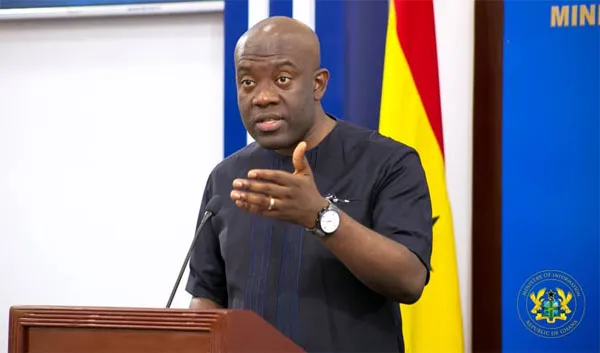The Member of Parliament for Ofoase/Ayirebi and Ranking Member on Parliament’s Economy and Development Committee, Kojo Oppong Nkrumah, has taken a firm swipe at the government over the recently introduced Energy Sector Fuel Levy, accusing it of being a veiled revenue-raising tactic rather than a targeted solution to the country’s power sector challenges.
In an exclusive interview on Channel One Newsroom, Mr. Oppong Nkrumah questioned the transparency behind the levy, asserting that the government is using it to plug budget holes created by the elimination of other taxes—rather than using it for the stated purpose of addressing energy sector debt or securing fuel for power generation.
“The government in one breath said they wanted to pay energy sector debt, but we reminded them that on two other occasions, they had already sought amendments to do just that,” the former Information Minister said. “So, this cannot be for energy sector debt.”
The MP further pointed out inconsistencies in the government’s communication regarding the levy’s purpose. Initially pitched as a measure to help clear legacy energy sector debts, the levy was later described by the Energy Minister as a means to ensure fuel availability for Ghana’s thermal power plants—earning it the nickname “Dumsor Levy.”
“They still haven’t provided clarity,” Mr. Oppong Nkrumah stated. “But we know what it is for: It’s to block the hole in the budget that has been created as a result of the removal of taxes without introducing corresponding budget cuts.”
The MP’s critique raises broader concerns about the government’s fiscal strategy. By removing a number of taxes and levies without adequately reducing public expenditure, the administration is accused of resorting to backdoor revenue strategies—such as the Energy Sector Fuel Levy—to shore up its finances.
Mr. Oppong Nkrumah is calling for greater transparency and accountability, urging the government to clearly outline the rationale and intended use of new levies and avoid misleading the public.
“Ghanaians deserve to know the real reasons behind new charges, especially during difficult economic times. We must be honest about whether these measures are meant to fix the energy sector or fix the budget,” he said.
The new levy has already sparked backlash among ordinary Ghanaians and energy sector stakeholders who fear that the additional cost of fuel will further increase utility tariffs and transportation costs, exacerbating the cost-of-living crisis.
With the public yet to receive a detailed breakdown of how the funds will be used, critics argue that the levy reflects deeper issues of fiscal indiscipline and lack of policy coherence in the energy sector.

